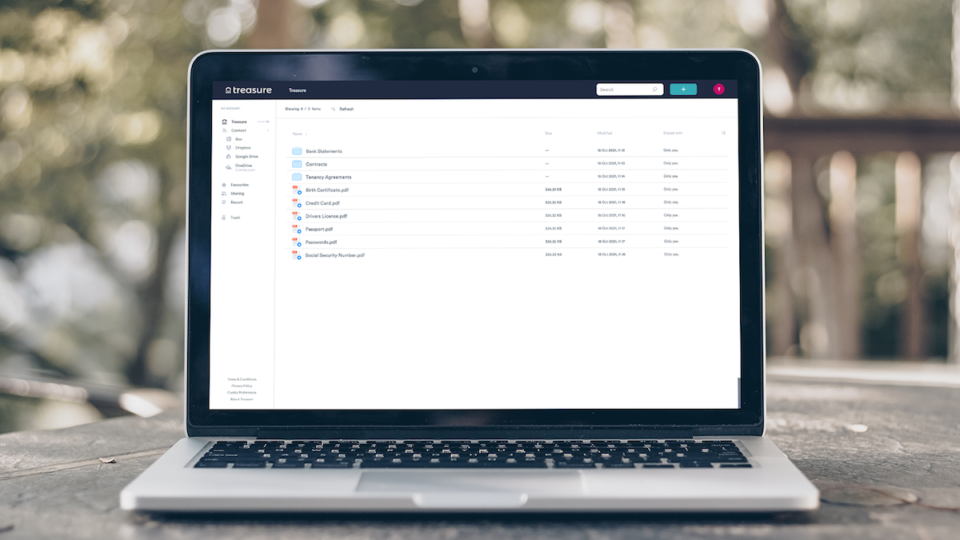2021 has been, let’s say, an “interesting” year for data privacy. There was that time in April when names, addresses, locations, emails of about 530 million Facebook users leaked online — oops! — and the tech giant chose not to notify those exposed. Or who can forget when Facebook and Instagram were basically deleted entirely for 5 hours in October. Or there was that time in June when 700 million LinkedIn members had their data scraped and sold on internet forms. In fact, analytics firm Risk Based Security estimated that in the first six months of 2021 over 18.8 billion personal records were released online across the world. So yeah, not great.
It’s easy to feel these days that no one has control over their data, and that these kinds of data breaches are just becoming normalized — a lot of big tech companies would prefer it that way.
We get it, the topic might not feel sexy, but there are a bunch of reasons why you should care — why we should all care. We’ve teamed up with Treasure Cloud, an encryption-based cloud storage platform, to give you the juice.
Most of your data currently on the cloud isn’t private
It might seem like the photos, documents and files you store online are free from the prying eyes of others. In reality, most cloud-based storage companies bury clauses in their terms and conditions that allow them to view, analyse and even sell your data to third parties.
Considering very few people completely read those agreements, there is a good chance you don’t even know this is happening. Ever seen Google Photos make a gif out of a series of pictures you uploaded? That technology is made possible by algorithms pouring over your data. If you think it’s neat, great. But what if you don’t want one of the biggest tech companies looking through your pictures?
Protecting your data isn’t just about you
We all have data on our computers, storage sites and social pages that aren’t just about us. We share files with family members, take pictures of our children and friends, or upload sensitive documents with several stakeholders. It’s important to remember here that files you upload to a platform like Google Drive or Dropbox aren’t your only exposure to cloud-based data leaks. Nearly every website on earth uses some kind of cloud service provider to store their data — and do you know what company it is? Their security levels? Probably not.
Most of us are complacent about the status quo
Remember that big Facebook data leak earlier this year? Well, one Facebook representative accidentally sent a journalist an internal email that stated Facebook fully expects data breaches like that one to happen “regularly” and started a communications strategy to normalize such events in the public eye.
The short version: they’ve given up protecting your data and now just want you to stop caring. The worst part is that it’s an understandable strategy. Despite big data leaks bringing bad press for a news cycle or two, most mainstream users simply don’t actively look for solutions that truly protect their data online. We’ve become used to platforms like Facebook, Instagram, Google Drive, and the like — even with terms and conditions that allow those platforms to use, sell, and view everything you upload.
Photo: Treasure Cloud
It’s not that hard to protect yourself these days
Protecting your data online doesn’t require a degree in computer science or 50+ hours of binge-watching Linus Tech Tips on YouTube. Platforms like Treasure Cloud are designed specifically with these issues in mind and are often designed to work seamlessly with other storage platforms you already use.
Treasure Cloud offers client-side encryption for all files saved on its platform. What does that mean? Unlike other cloud storage providers, Treasure Cloud can’t actually view or even open the data that you store on its platform. This is true even for things like recovery passwords — meaning you are the only person on earth with access to your code.
The platform also works seamlessly with third-party applications like Google Drive, Dropbox, and Box, meaning you can organize and encrypt files across your different platforms within the same Treasure Cloud interface — one log-in, thank you very much. There is also password protection for file sharing as an additional layer of security, ensuring only the people you want to see your files will actually see them.
Thinking of stepping up your data security game? Treasure Cloud has an ongoing referral campaign that earns you an extra 10GB of storage for each referral you make to the platform — so round up your friends who have the internet security savvy of an old auntie. The bonus is stackable up to 800GB worth of storage. All you have to do is sign up here.
If you want to learn more about the platform, you can check out their blog for more internet security reads, or visit the main website to learn more about the service.
Stay safe out there, fam.
Note: Coconuts Media is not a financial services company, does not provide financial advice, and is not a qualified expert in the storage of digital assets—financial or otherwise. This article is part of a paid partnership with Treasure Cloud and is for educational purposes only.





